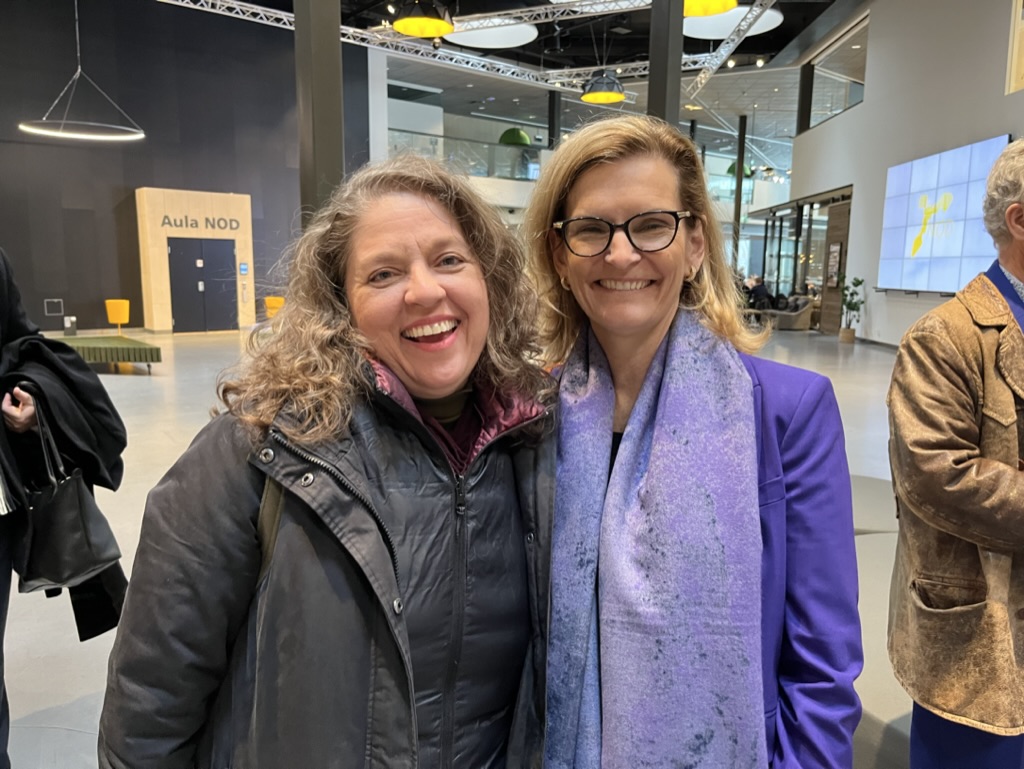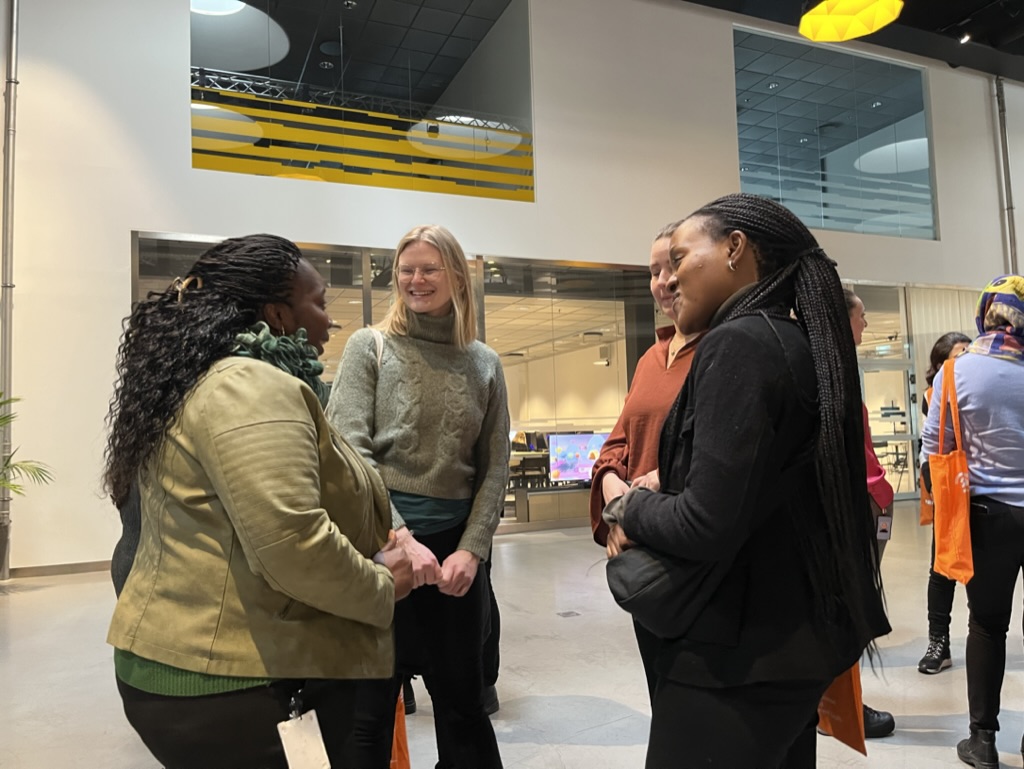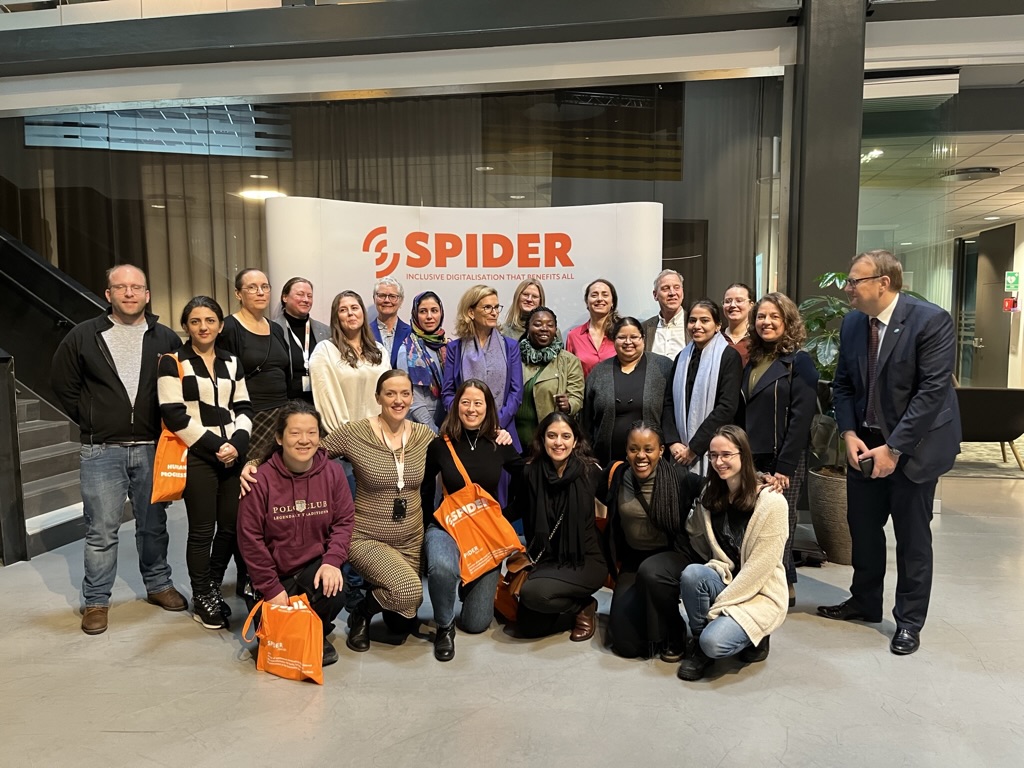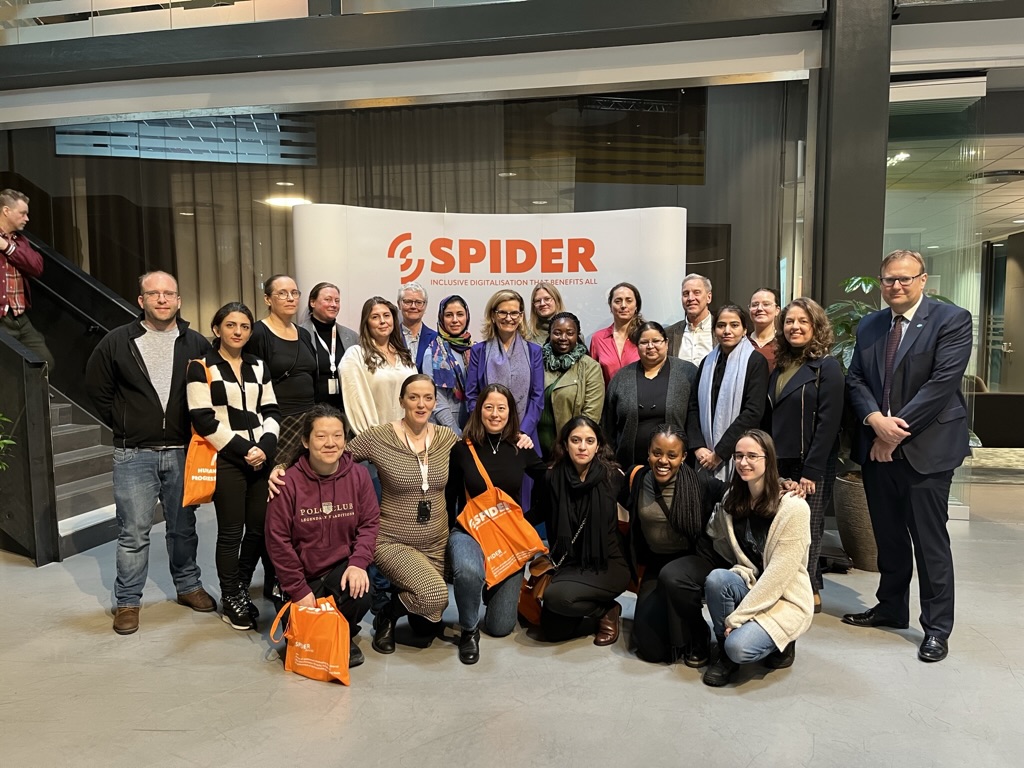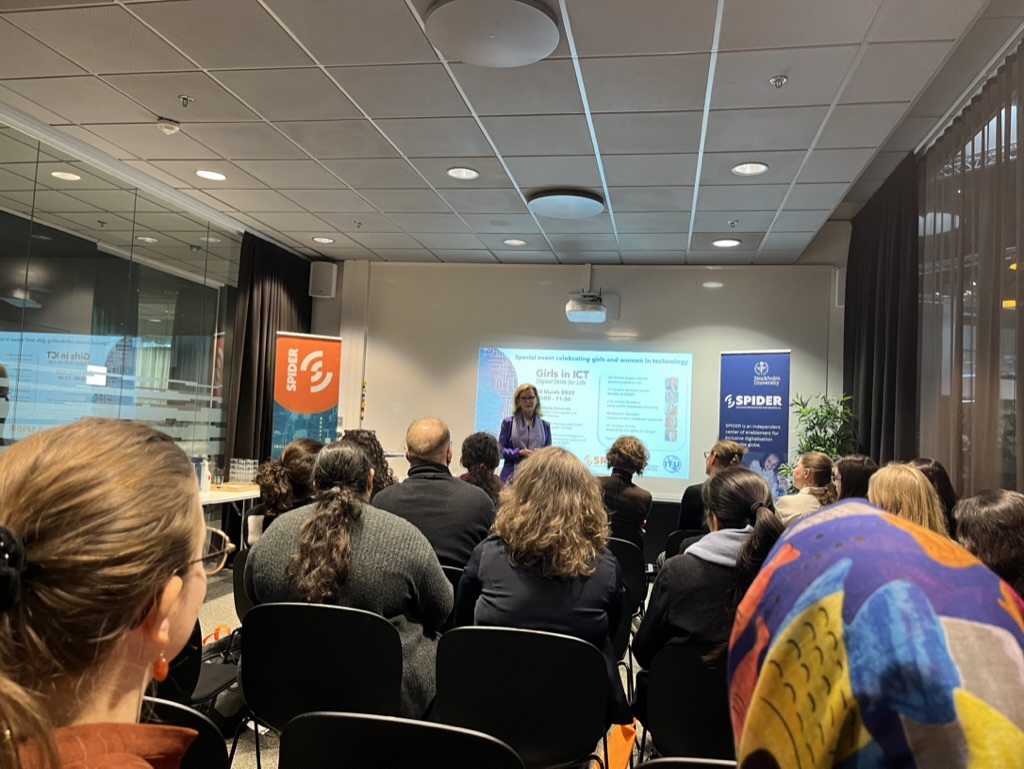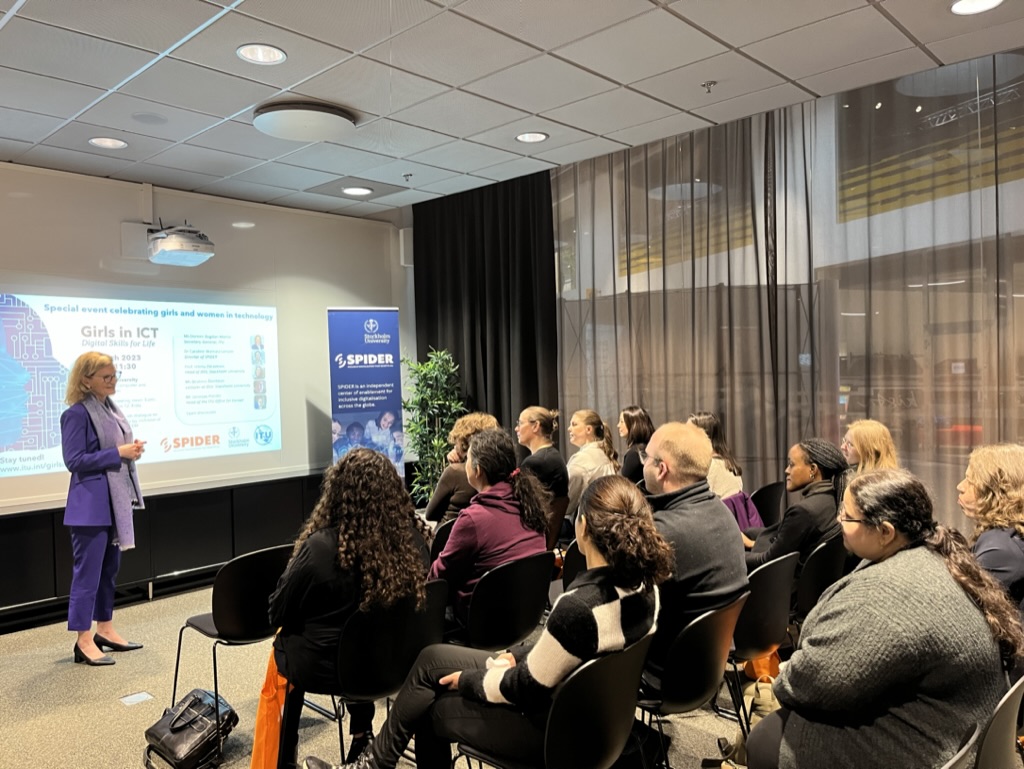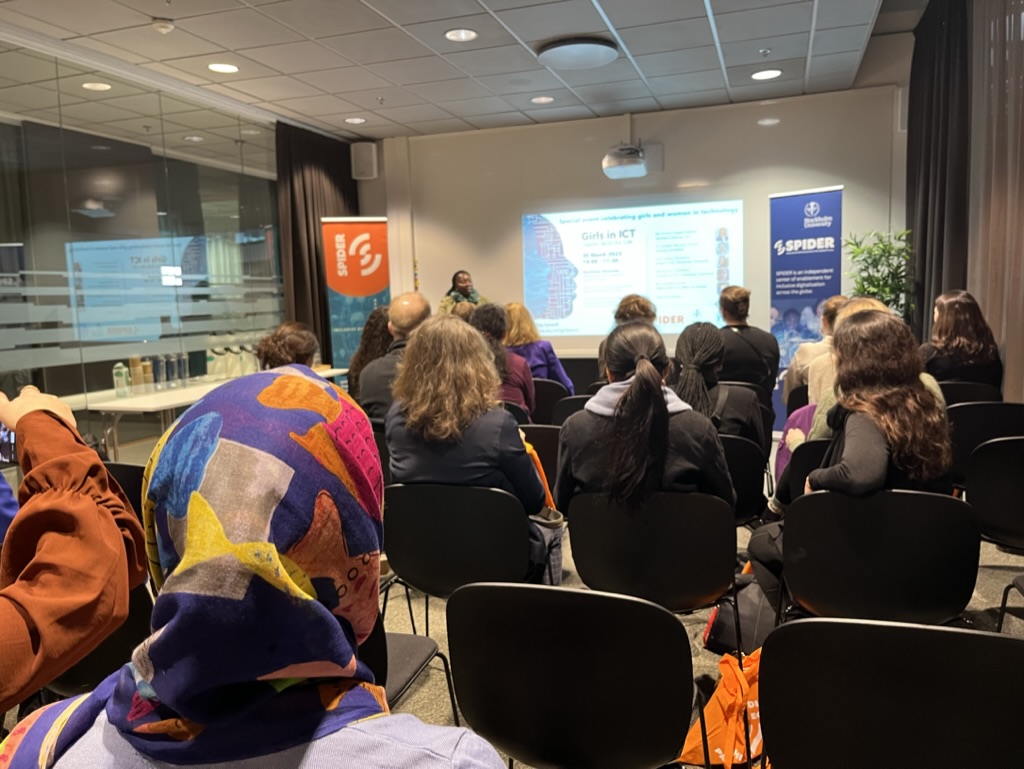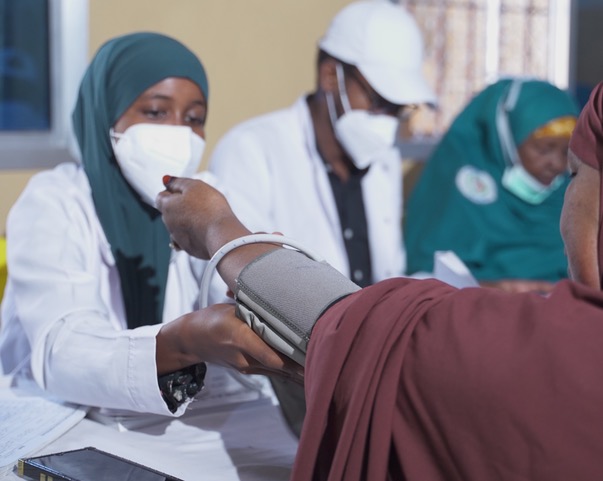The Secretary General of ITU visits SPIDER to launch campaign
Just over a quarter of people working in technology jobs identify as women, and the progress towards equality in the sector seems slow. There are many theories and experiences that can inform how we can propel equity in tech, and Ms Doreen Bogdan-Martin, the first woman to hold the post (in 157 years) of Secretary General at the International Telecom Union (ITU) is on a mission to do so.
Launching the Girls in ICT campaign with SPIDER at DSV, Stockholm Univeristy
ITU Europe office represented by Mr Jaroslaw Ponder and Ms Bogdan-Martin visited SPIDER and its host department of Computer and Systems Sciences at University of Stockholm to meet students on 30th March 2023 in what is referred to as the Silicon Valley of Sweden, Kista, in the outskirts of Stockholm. Dr Caroline Wamala Larsson, the Director of SPIDER welcomed the high-level delegation as SPIDER (a centre of enablement for digitalising international development) is a long-term partner of ITU in its international training programme, a focused and inclusive programme raising capacity of African telecom regulatory authorities in a mutual-exchange programme between Sweden and Sub-Saharn Africa.
The Head of Department at DSV, Professor Jelena Zdravkovic told the visitors about Stockholm University and more specifically about the Department of Computer and Systems Sciences, one of the oldest IT departments in the world. Ms Beatrice Åkerblom, who is responsible for the Bachelor programme in computer science and software engineering, the programme with the most women among its students in Sweden, shared her own experiences in carving a career out for herself in the tech sector.
The most valued part of the celebration of women in technology at DSV on 30th March, a starting point for the #GirlsInICT initiative at ITU, was when women students shared their challenges, goals, and reasons for choosing technology as a field of study or career. A rich discussion on how to achieve equity followed.
- Role models are important, many have noted that they chose courses where a woman was leading or many other students were women.
- Challenge in finding companies to give work experience to women in technology and women tend to underestimate their own skills and may therefore not apply for jobs they are well skilled for.
- Excessive focus on the level of math may deter some students.
- DSV at Stockholm University facilitates interdisciplinary higher education as it is situated in the school of Social Sciences, despite having a STEM (Science, Technology, Engineering and Maths) profile. Globally there is a shift to STEAM (Science, Technology, Engineering, Arts and Maths) as engineers and IT professionals need more skills that would include negotiation, mediation, etc. in an ever-changing world to stand out and be successful in innovation spaces.
- Gender equity starts at home, encouragement for girls to take part in mechanical exercises, spend time on computers and be celebrated for their curiosity to go beyond the norm encourage young women to not be limited by gender stereotypes.
- Inclusion spans over other areas, including the fact that many girls are on the autism spectrum but not diagnosed early, nor encouraged to engage with technology as their boy-peers with the same diagnosis.
- Attention needs to also be given to women who enter the sector mid-or-late career as they have key skills to bring to the job but are often met with ignorance.
- It is essential to tackle organisational culture in IT companes, to retain women in tech roles who may be “driven out” in highly men-dominated spaces and masculine atmospheres.
The two-hour event was highly engaging and appreciated by students who took the chance to speak to Ms Bogdan-Martin to share their willingness to lead and motivate other women to enter the sector. ITU informed participants about the many chances at ITU and SPIDER welcomed support in the work the center engages in to promote gender inclusion and equity in digitalisation.







